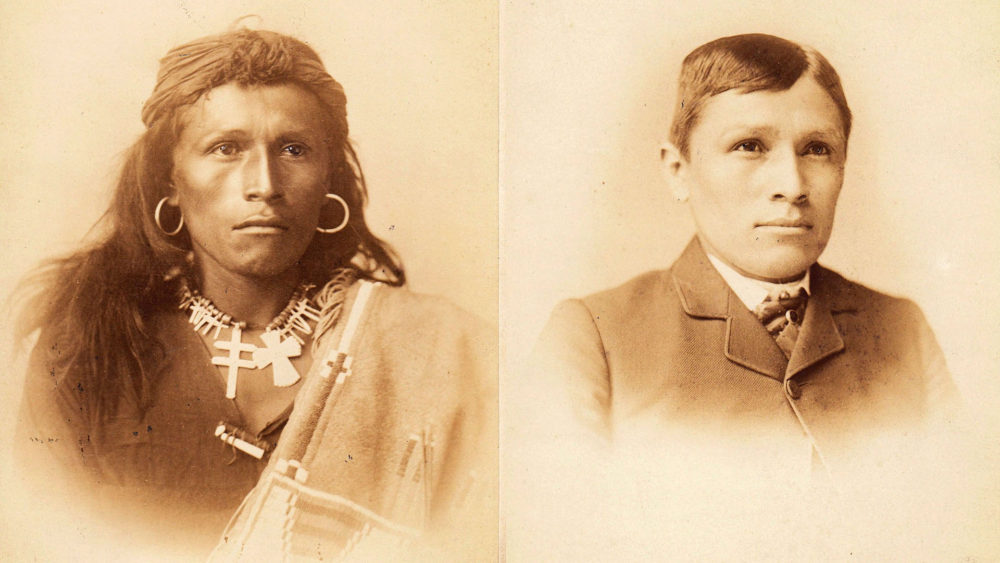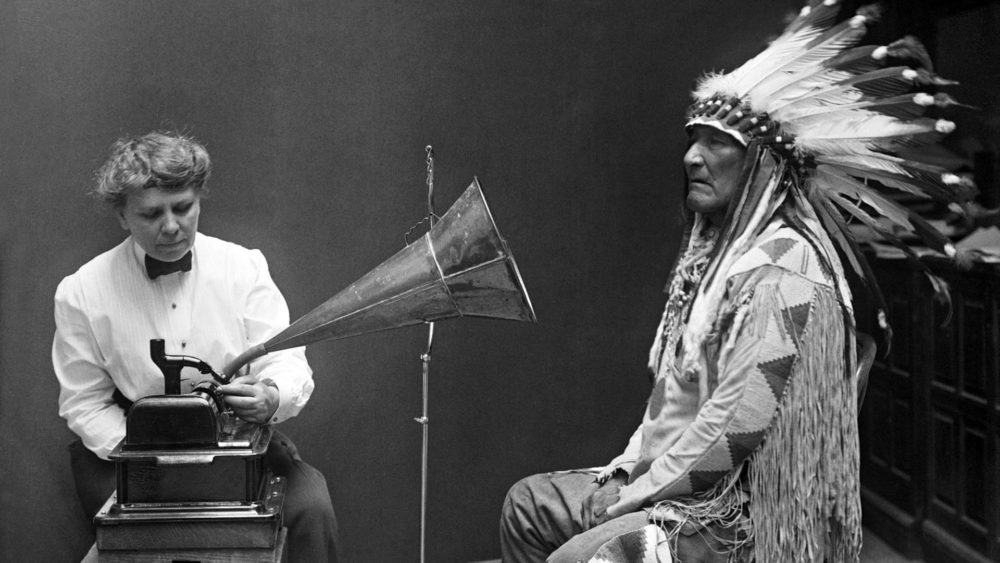
American anthropologist and ethnographer Frances Densmore records the Blackfoot chief Mountain Chief in 1916 for the Bureau of American Ethnology.
Introduction
Native Americans long dominated the vastness of the American West. Indigenous Americans had lived in North America for over ten millennia and, into the late-nineteenth century, perhaps as many as 250,000 natives still inhabited the American West. But then unending waves of American settlers, the American military, and the unstoppable onrush of American capital conquered all. The United States removed native groups to ever-shrinking reservations, incorporated the West first as territories and then as states, and, for the first time in its history, controlled the enormity of land between the two oceans. The history of the late-nineteenth-century West is many-sided. Tragedy for some, triumph for others, the many intertwined histories of the American West marked a pivotal transformation in the history of the United States. The following sources explore the long American “conquest” of the West.
Documents
1. Chief Joseph on Indian Affairs (1877, 1879)
2. William T. Hornady on the Extermination of the American Bison (1889)
3. Chester A. Arthur on American Indian Policy (1881)
4. Frederick Jackson Turner, “Significance of the Frontier in American History” (1893)
5. Turning Hawk and American Horse on the Wounded Knee Massacre (1890/1891)
On February 11, 1891, a Sioux delegation met with the Commissioner of Indian Affairs in Washington D.C. and gave their account of the Wounded Knee Massacre six weeks prior.
6. Laura C. Kellogg on Indian Education (1913)
The United States used education to culturally assimilate Native Americans. Laura Cornelius Kellogg, an Oneida author, performer, and activist who helped found the Society of American Indians (SAI) in 1913, criticized the cultural chauvinism of American policy. Speaking to the SAI, she challenged her Indian audience to embrace modern American democracy while maintaining their own identity.
7. Helen Hunt Jackson on a Century of Dishonor (1881)
In 1881, Helen Hunt Jackson published A Century of Dishonor, a history of the injustices visited upon Native Americans. Exposing the many wrongs perpetrated by her country, she hoped “to redeem the name of the United States from the stain of a century of dishonor.”
Media
Tom Torlino (1882, 1885)
Frances Densmore and Mountain Chief (1916)

